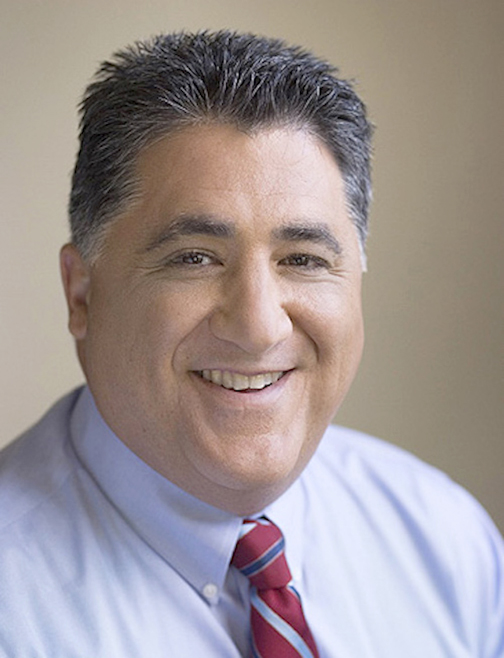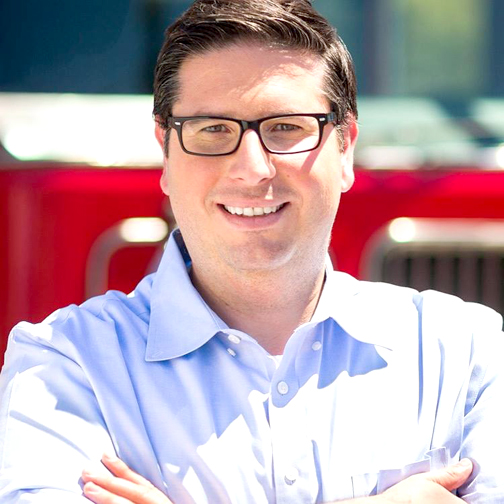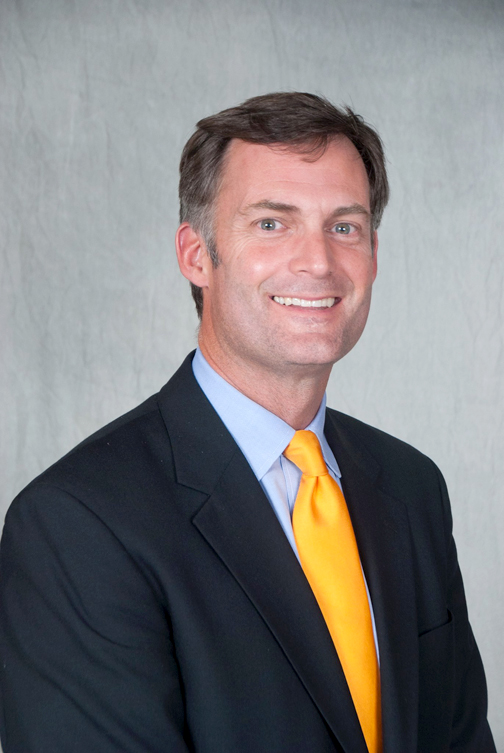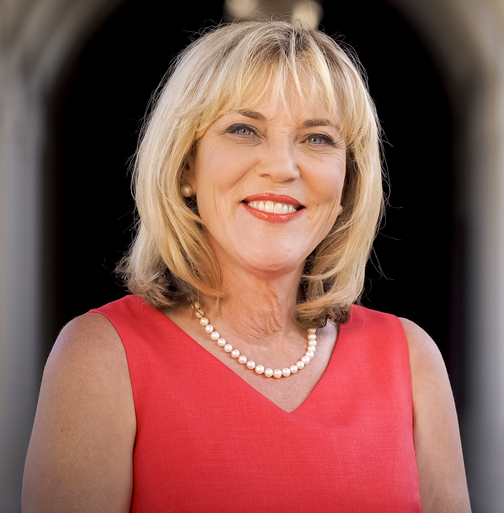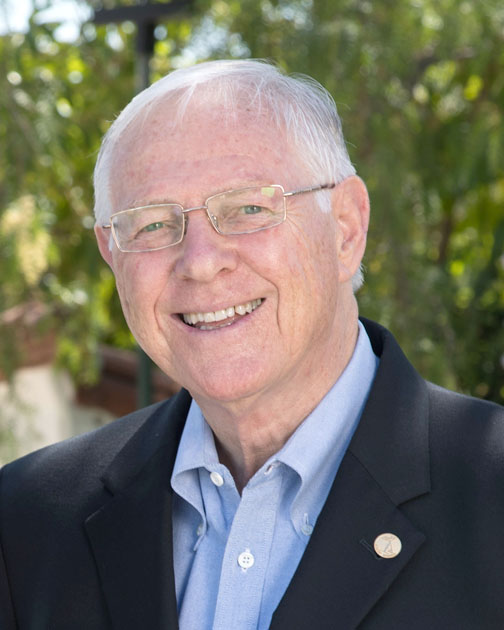CV Weekly reached out to candidates running for state assembly – 43rd District, state senate – 25th District and Los Angeles County Board of Supervisors – 5th District asking questions that are of interest to our readers. Responses are listed in alphabetical order, last name.
Weekend early voting for the Nov. 8 election is Oct. 29 & Oct. 30, Nov. 5 & Nov. 6 from 8 a.m. to 4 p.m. The closest location to Crescenta Valley is the North Hollywood Regional Library, 5211 Tujunga Ave. There are several vote by mail drop off locations. Visit lavote.net for times and addresses.
Running for the supervisor’s seat are candidates Kathryn Barger and Darrell Park.
Question: What is your position on the 710 project and why?
KB: This issue has endured for many years. We are no closer to resolution today than we were when I started working for Mike Antonovich in 1988. I am not going to wait for a final resolution of this matter before taking action to remedy some of the problems, which are required now. Traffic continues to worsen, and we simply cannot wait for a 710 tunnel to fix it. I live in this area and experience this congestion every day. Even without final resolution of this issue, there is much that can be done. Reverse traffic flow, better signal synchronization, and use of technology to monitor and re-route traffic can have an impact today pending a vote on 710.
The 710 itself is a complex issue. Step one is to address the Environmental Impact Review, budgetary constraints and availability of funding, and the views of those most directly affected.
DP: I am strongly opposed to the 710 project. The plans for the tunnel are dangerous and I do not believe the tunnel alone will remedy Los Angeles County’s traffic problems. We can make L.A. County the countrywide leader in transportation innovation by investing in technology and infrastructure that will cut traffic such as self-driving cars.
Our public transportation system is another key to solving our traffic problems. At this time, only 9% of public transportation profits come from the fare we pay. We can make all public transportation free for one year and record the data. Then we will have a much better understanding of how our residents use public transportation and be able to make informed decisions on where to allocate resources for improvement.
Question: Do you feel body cameras should be part of every police department in California? And should there be an independent commission to review the video or should be kept in-house when an incident occurs?
KB: Given the national attention and scrutiny of policing practices, body-worn cameras can be effective tools for law enforcement agencies across our state and nation. Many law enforcement agencies are considering the implementation of body-worn cameras because they can increase accountability and transparency thereby increasing the public’s trust in and appreciation of law enforcement. However, there are a host of important policies and procedures which must be thoughtfully considered. For example, when must officers activate and deactivate the cameras – including whether or not recording should include witnesses, victims and confidential informants, by whom and when should videos be reviewed, and which hardware and software are the best choice. Ultimately, the policies and procedures must strive to balance the public’s interest with the rights of peace officers and the people captured on video.
DP: Yes, I believe body cameras should be a part of every police department in California in order to establish accountability and protect both the officers and the residents. There must be an independent administrative department that reviews and stores all body camera footage. L.A. County paid over $45 million in sheriff abuse settlements last year. I would much rather invest in data storage for body camera footage and stop spending tax dollars on abuse settlements.
Question: The fifth district has the most diverse population. What will you do maintain the individuality of each area while keeping the district united?
KB: As a life long resident of Los Angeles County and the fifth district, I deeply appreciate the diversity of our community and its neighborhoods. This diversity and broad geography (ours is also the most diverse district in terms of size and topography) also leads to different needs for different areas. La Crescenta’s needs are very different from Pasadena or San Gabriel. I have a history of working in all communities of the fifth district in my role as Chief Deputy Supervisor, something I have really enjoyed over the past 15 years. I remain committed to deliver county services and resources to all communities, noting there are varying needs and “one size does not fit all.” I believe in a bottoms up approach, working at the local level with local leaders to address homelessness, job creation, infrastructure, transportation, the environment and other issues important to all of us in this district and county.
DP: The fifth district is incredibly diverse both in terms of cultural diversity and differences in the needs of the individual communities. In this district there are over 70 unincorporated towns and communities that have very little power and control over decisions regarding their community’s budget and resources. On the Board of Supervisors, I will fight to change our current system and create real, efficient and effective town councils. I will empower towns and provide resources that allow each diverse community to identify their priorities, find new solutions to problems, foster business development, and create stronger neighborhoods for all residents.
Running for the state assembly seat are candidates Laura Friedman and Ardy Kassakhian.
Question: How can California keep small businesses in the state?
LF: As a small business owner, I know how hard it can be to operate in California. I will streamline regulations and reduce costs. Education should be a priority so that our children are prepared for the jobs of the future and so that businesses, such as entertainment and new technology, will have the employees that they need in California. As a [Glendale City] Councilmember, I helped develop a concierge program in which businesses are assigned a single point-of-contact to help them identify property and navigate all the levels of the planning, permits and entitlement process. I found ways to cut red tape so that businesses can get up and running quickly and with less hurdles. California needs to get serious about keeping good paying jobs here at home.
AK: As a member of the Assembly, I will create a local Small Business Advisory Committee and seek input from the business community regarding things we can do to improve the business climate.
Question: How will you walk the line between enticing development to our local cities while realizing that many areas are “park poor?”
LF: We don’t need to entice residential development to the 43rd AD – there is already more than enough interest in the region from developers. We need to control growth through smart planning that preserves existing high-quality neighborhoods and precious open space. New housing should occur near job centers and public transportation. I voted to impose park impact fees on new developments in Glendale which have funded new, and renovated existing parks in the densest parts of the City. We need to be willing to demand that developers pay their fair share and abide by our highest standards. I have advocated for the restoration of the L.A. River, which would provide new parkland though the 43rd AD. I have supported the creation of a “cap park” above the 134 freeway.
AK: As a local elected official and long-time resident, I am keenly aware of the dilemma posed in this question. While land use decisions such as this are the responsibility of local city councils and I do not believe the state should interfere in those local decisions, I believe the legislature can and should provide financial support to cities seeking to develop “quality of life” projects, including parks.
Question: Phenomenon like gentrification has made it almost impossible for low-income families to stay in local neighborhoods. How, if elected, will you protect and grow low-income housing by not only making it affordable but by also making it attractive to cities? For example, urging parks in these proposed projects.
LF: I am proud to have helped build over 500 permanent affordable housing units in Glendale – some of the highest quality housing in the city. Doran Gardens, for example, includes a public playground. Veterans Village offers services to the returning veterans it houses. As an Assemblymember, I will continue to develop exceptional workforce, low-income and senior housing. In addition, I voted to create regulations to help protect renters and to enforce the rights of tenants. Homelessness and affordable housing will be one of my top priorities in Sacramento.
AK: I strongly support the L.A. County bond measure on the November ballot to provide funds with which to develop more housing for the homeless. This kind of housing involves zoning decisions that are under the authority of local city councils. However, as an Assemblymember, I will work with the Veterans’ Affairs committee to provide the resources to address the needs of the homeless veterans throughout the state.
Question: With the drought predicted to continue, combined with other threats to our environment and our aging water pipe system, how can local water companies get funding for infrastructure repair?
LF: As a member of the Metropolitan Water District board, I’ve learned that water infrastructure is a state and regional issue. I believe our water challenges would be best served by reducing our reliance on imported water through investments in Southern California groundwater recharge and clean up, expanding local storage for rain and storm water collection, conservation and water system efficiency and advanced water recycling. I’ve worked hard to find solutions to our drought, and can be a leader on water issues in Sacramento.
AK: Traditionally, local water companies have gotten their infrastructure funding from the rate payers. However, the massive amounts of money needed now to address these issues are far greater than what can fairly be added to the rate base. As a member of the Assembly, I will aggressively seek state funding to support local efforts to upgrade and modernize water delivery systems. I also will devote significant energy to addressing such issues as recycling water for non-drinking purposes, exploration of expanded desalinization, and other means of increasing our water supply.
Running for the state senate seat are Mike Antonovich and Anthony Portantino.
Question: Former Senator Jack Scott built his platform on education. Senator Carol Liu built on his legacy; how would you continue that role?
MA: As a former government and history teacher, education has always been a priority. Seeing a lack of opportunities for artistic expression, especially within underserved communities, I am the father of the acclaimed Los Angeles County High School of the Arts. LACHSA now sits as a shining example of both student opportunities but also college readiness for its pupils. We need to make sure more opportunities are given to our students to pursue their passion.
AP: I have worked productively with Jack and Carol on education policy and both have endorsed me, as have about 70 elected current and former educators. Locally, four of five GUSD board members, all five GCC trustees and all five La Cañada board members join our State Superintendent Tom Torlakson, parents, teachers and faculty in recognizing my commitment to public education. A key difference between myself and my opponent is our contrasting positions on school funding. I’ve supported Props 30 and 55 to fund education and he’s opposed them.
Specifically, I believe we need to expand our education model to K-14 and I am best prepared to do it. I chaired the Assembly Higher Education Committee, I have been teaching leadership at USC and I recently ended my tenure as the chair of the PCC Bond Oversight committee. I am a PTA member and my two daughters are public school children.
Question: Higher education costs have risen higher than cost of living. According to US News report: From 1995 to 2015 the average tuition and fees at private national universities have increased 179%, out-of-state tuition and fees at public universities have risen 226% in 10 years and in-state tuition and fees at public national universities have grown 296%. California state universities and colleges have also seen these types of astronomical increases. What would you do to stop the out-of-control inflation and help those who wish to attend a state college or university?
MA: Unlike my opponent, I would not have voted for higher tuition for students attending our UCs, CSUs and Community Colleges. We can do better. Our first focus should be on substantially reducing the bloated bureaucracy and focusing more of our resources to serving the mission assigned to our higher education system – educating the future entrepreneurs, teachers and leaders of our communities. Our economy and the success of our state depend on a well-prepared workforce and the next generation of innovators like the ones who built this great state.
AP: I was willing to buck my own party to stand up for school funding. I strongly opposed a state budget that dramatically sought to cut the Cal State and UC systems. In the past, I proposed using a pay-as-you-go funding strategy to force the legislature to prioritize K-16 education. California leaves over $300 million of unused federal financial aid on the table and we are last in counselor-to-student ratio in the country. Both situations are untenable and need to be corrected.
Specifically, we need to do several things: commit to adequately funding higher education, recommit to the constitutional guarantee for higher education that prioritizes California students, make community college free and accessible again for every Californian.
As mentioned above, my opponent has strongly opposed the two most important and recent funding strategizes for education, Prop 30 and Prop 55 while I’ve strongly support them.
Question: If elected, how will you protect our environment while increasing our competitive edge for business start-ups in California?
MA: As supervisor, the environment was at the top of my agenda; I have a proven track record.
To increase air quality and protect jobs, I led efforts to phase out the MTA’s dirty diesel busses and replace them with CNG vehicles. I spearheaded the effort to locate a company that manufactures electric busses in Los Angeles County. As this company grows, it will help drive our economy in the future while reducing damage to our environment. I also led the effort to replace dirty diesel rubbish trucks with CNG trucks in Los Angeles, San Bernardino, Orange and Riverside counties. I also led efforts to add thousands of acres of open spaces, hiking and equestrian trails, and other recreational areas.
When the Porter Ranch Aliso Canyon Gas Leak was discovered, I fought to make sure that affected residents receive treatment and are compensated for the damage to their homes and the disruption to their lives.
AP: I feel I am well positioned to accomplish both these important goals because I recognize they are not mutually exclusive. I am endorsed by the Sierra Club, the League of Conservation voters, the California Labor Federation and the California Small Business Association. As the former chair of the Higher Education Committee I have relationships at our major universities to pursue expansion and investment in our green economy, alternative energy and R&D.
California needs to adopt a statewide innovation strategy (something I proposed a decade ago) and use targeted tax incentives to encourage startups and entrepreneurship. For small businesses, we must look for creative ways to lower workers compensation costs.
I am very proud that I created a summer fellowship for entrepreneurs at the University of California and an internship for science professionals in Sacramento where 10 scientists inject science and technology expertise into policy making.
